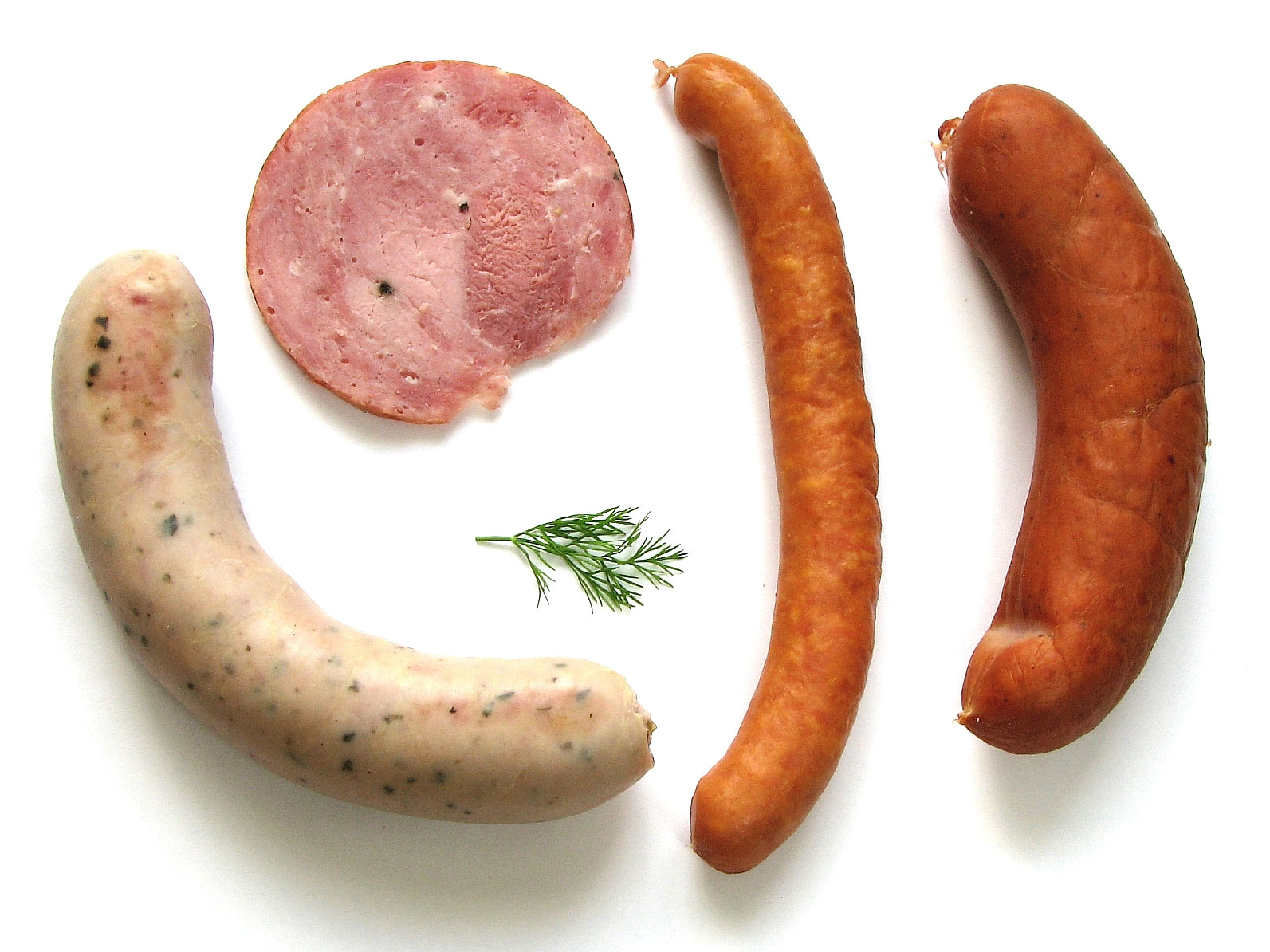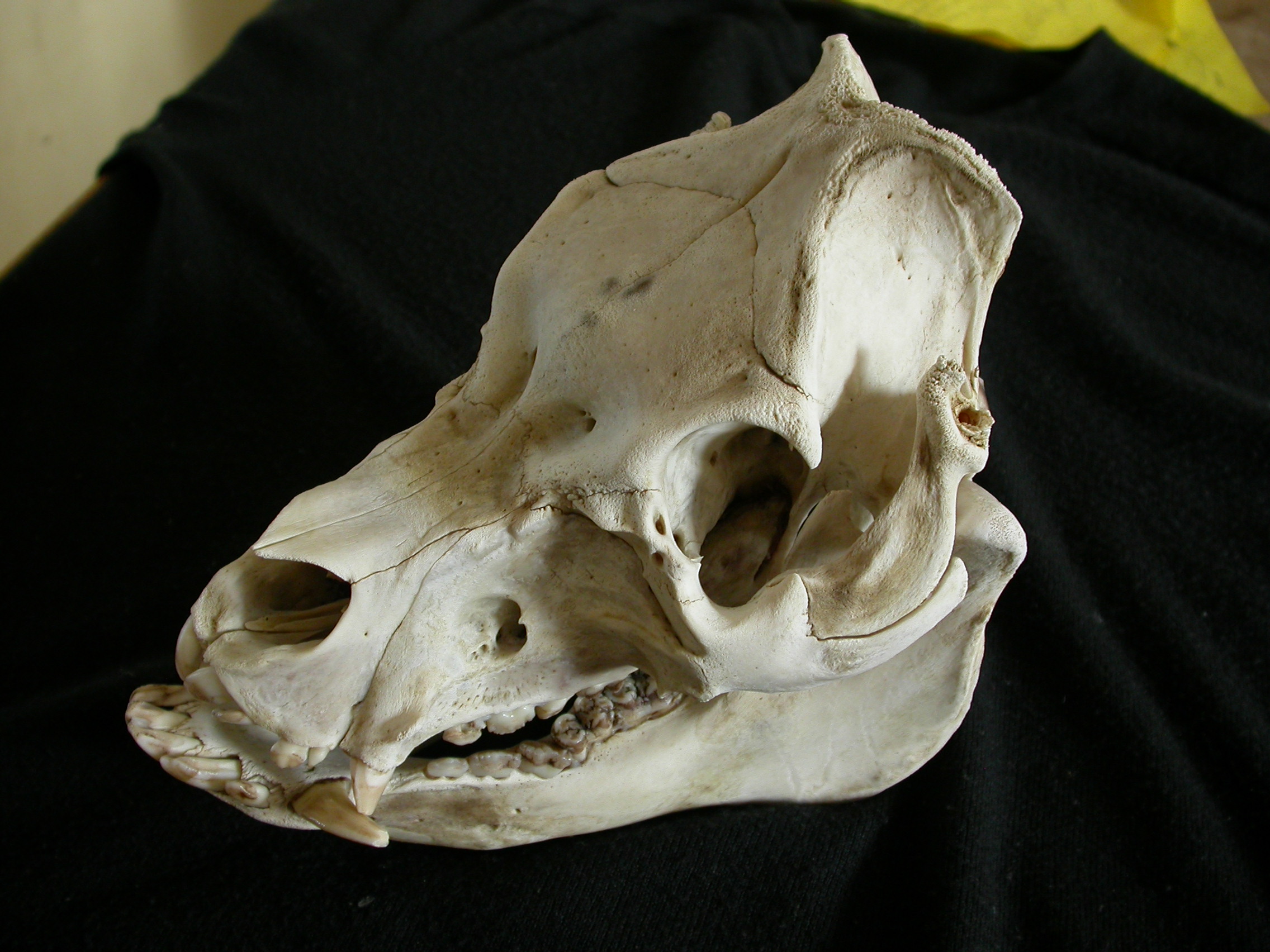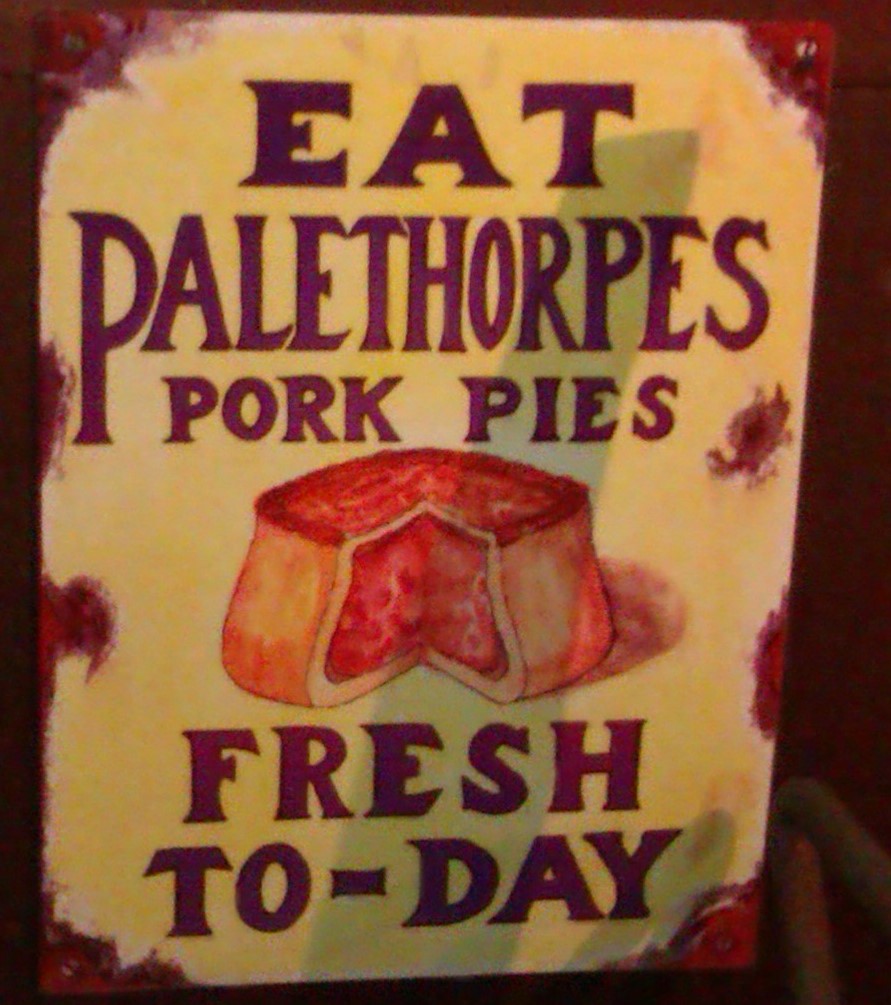|
Snorkers
Snorkers is a British English colloquialism for sausages. It may have a Royal Navy slang origin.Jolly, R. (2012) ''Jackspeak: A guide to British Naval slang & usage'', Bloomsbury, p.419 The term is probably derived from an earlier dialect term for a young pig: Wright's 19th-century ''English Dialect Dictionary'' notes ''snorker'' as a widespread word for a piglet, related to the word ''snork'', to grunt or snore.Wright, J. (1898) ''The English dialect dictionary, being the complete vocabulary of all dialect words still in use, or known to have been in use during the last two hundred years'', v5, Putnams, p.593 Snorkers is the nickname for Palethorpe's pre-cooked tinned sausages. The nickname originated aboard World War II Royal Navy submarines, along with other culinary delights such as HITS (tinned herrings in tomato sauce) and Baby's Heads (tinned steak and kidney pudding). Fresh food lasted only a few days aboard submarines so nearly everything was tinned. Snorkers are mention ... [...More Info...] [...Related Items...] OR: [Wikipedia] [Google] [Baidu] |
British English
British English (BrE, en-GB, or BE) is, according to Lexico, Oxford Dictionaries, "English language, English as used in Great Britain, as distinct from that used elsewhere". More narrowly, it can refer specifically to the English language in England, or, more broadly, to the collective dialects of English throughout the British Isles taken as a single umbrella variety, for instance additionally incorporating Scottish English, Welsh English, and Ulster English, Northern Irish English. Tom McArthur (linguist), Tom McArthur in the ''Oxford Guide to World English'' acknowledges that British English shares "all the ambiguities and tensions [with] the word 'British people, British' and as a result can be used and interpreted in two ways, more broadly or more narrowly, within a range of blurring and ambiguity". Variations exist in formal (both written and spoken) English in the United Kingdom. For example, the adjective ''wee'' is almost exclusively used in parts of Scotland, North E ... [...More Info...] [...Related Items...] OR: [Wikipedia] [Google] [Baidu] |
Sausage
A sausage is a type of meat product usually made from ground meat—often pork, beef, or poultry—along with salt, spices and other flavourings. Other ingredients, such as grains or breadcrumbs may be included as fillers or extenders. When used as an adjective, the word ''sausage'' can refer to the loose sausage meat, which can be formed into patties or stuffed into a skin. When referred to as "a sausage", the product is usually cylindrical and encased in a skin. Typically, a sausage is formed in a casing traditionally made from intestine, but sometimes from synthetic materials. Sausages that are sold raw are cooked in many ways, including pan-frying, broiling and barbecuing. Some sausages are cooked during processing, and the casing may then be removed. Sausage-making is a traditional food preservation technique. Sausages may be preserved by curing, drying (often in association with fermentation or culturing, which can contribute to preservation), smoking, or ... [...More Info...] [...Related Items...] OR: [Wikipedia] [Google] [Baidu] |
Royal Navy
The Royal Navy (RN) is the United Kingdom's naval warfare force. Although warships were used by English and Scottish kings from the early medieval period, the first major maritime engagements were fought in the Hundred Years' War against France. The modern Royal Navy traces its origins to the early 16th century; the oldest of the UK's armed services, it is consequently known as the Senior Service. From the middle decades of the 17th century, and through the 18th century, the Royal Navy vied with the Dutch Navy and later with the French Navy for maritime supremacy. From the mid 18th century, it was the world's most powerful navy until the Second World War. The Royal Navy played a key part in establishing and defending the British Empire, and four Imperial fortress colonies and a string of imperial bases and coaling stations secured the Royal Navy's ability to assert naval superiority globally. Owing to this historical prominence, it is common, even among non-Britons, to ref ... [...More Info...] [...Related Items...] OR: [Wikipedia] [Google] [Baidu] |
Slang
Slang is vocabulary (words, phrases, and linguistic usages) of an informal register, common in spoken conversation but avoided in formal writing. It also sometimes refers to the language generally exclusive to the members of particular in-groups in order to establish group identity, exclude outsiders, or both. The word itself came about in the 18th century and has been defined in multiple ways since its conception. Etymology of the word ''slang'' In its earliest attested use (1756), the word ''slang'' referred to the vocabulary of "low" or "disreputable" people. By the early nineteenth century, it was no longer exclusively associated with disreputable people, but continued to be applied to usages below the level of standard educated speech. In Scots dialect it meant "talk, chat, gossip", as used by Aberdeen poet William Scott in 1832: "The slang gaed on aboot their war'ly care." In northern English dialect it meant "impertinence, abusive language". The origin of the word is ... [...More Info...] [...Related Items...] OR: [Wikipedia] [Google] [Baidu] |
The English Dialect Dictionary
''The English Dialect Dictionary'' (''EDD'') is the most comprehensive dictionary of English dialects ever published, compiled by the Yorkshire dialectologist Joseph Wright (1855–1930), with strong support by a team and his wife Elizabeth Mary Wright (1863–1958). The time of dialect use covered is, by and large, the Late Modern English period (1700–1903), but given Wright's historical interest, many entries contain information on etymological precursors of dialect words in centuries as far back as Old English and Middle English. Wright had hundreds of informants ("correspondents") and borrowed from thousands of written sources, mainly glossaries published by the English Dialect Society in the later 19th century, but also many literary texts written in dialect. In contrast to most of his sources, Wright pursued a scholarly linguistic method, providing full evidence of his sources and antedating modes of grammatical analysis of the 20th century. The contents of the ''EDDs nea ... [...More Info...] [...Related Items...] OR: [Wikipedia] [Google] [Baidu] |
Piglet (animal)
The pig (''Sus domesticus''), often called swine, hog, or domestic pig when distinguishing from other members of the genus '' Sus'', is an omnivorous, domesticated, even-toed, hoofed mammal. It is variously considered a subspecies of ''Sus scrofa'' (the wild boar or Eurasian boar) or a distinct species. The pig's head-plus-body length ranges from , and adult pigs typically weigh between , with well-fed individuals even exceeding this range. The size and weight of hogs largely depends on their breed. Compared to other artiodactyls, a pig's head is relatively long and pointed. Most even-toed ungulates are herbivorous, but pigs are omnivores, like their wild relative. Pigs grunt and make snorting sounds. When used as livestock, pigs are farmed primarily for the production of meat, called pork. A group of pigs is called a ''passel'', a ''team'', or a ''sounder''. The animal's bones, hide, and bristles are also used in products. Pigs, especially miniature breeds, are kept as p ... [...More Info...] [...Related Items...] OR: [Wikipedia] [Google] [Baidu] |
Palethorpe's
Palethorpe's is a British producer of cooked meat and pastry products and was particularly well known for its branded sausages. Founded in 1852, it was bought by the Bibby Group in 1969 and then by Haverhill Meat Products (a J Sainsbury and Canada Packers joint venture) before becoming part of the Northern Foods Chilled Foods division in 1991. Palethorpes was then part of Pork Farms before being taken over by the addo food group. History Henry Palethorpe was born in 1829 in the Black Country. Setting up business as a butcher in Birmingham in the 1850s, he realised that the United States was flooding the United Kingdom market with cheap bacon and pork. Palethorpe decided to move into value-added meat processing products, specialising in sausages, with which he had success. The company moved to Tipton in 1896, claiming at the time to be the world's largest sausage producer. The company expanded during World War I, supplying canned meat products to the British Army. However, it l ... [...More Info...] [...Related Items...] OR: [Wikipedia] [Google] [Baidu] |
World War II
World War II or the Second World War, often abbreviated as WWII or WW2, was a world war that lasted from 1939 to 1945. It involved the vast majority of the world's countries—including all of the great powers—forming two opposing military alliances: the Allies and the Axis powers. World War II was a total war that directly involved more than 100 million personnel from more than 30 countries. The major participants in the war threw their entire economic, industrial, and scientific capabilities behind the war effort, blurring the distinction between civilian and military resources. Aircraft played a major role in the conflict, enabling the strategic bombing of population centres and deploying the only two nuclear weapons ever used in war. World War II was by far the deadliest conflict in human history; it resulted in 70 to 85 million fatalities, mostly among civilians. Tens of millions died due to genocides (including the Holocaust), starvation, ma ... [...More Info...] [...Related Items...] OR: [Wikipedia] [Google] [Baidu] |
Nicholas Monsarrat
Lieutenant Commander Nicholas John Turney Monsarrat FRSL RNVR (22 March 19108 August 1979) was a British novelist known for his sea stories, particularly '' The Cruel Sea'' (1951) and ''Three Corvettes'' (1942–45), but perhaps known best internationally for his novels, ''The Tribe That Lost Its Head'' and its sequel, ''Richer Than All His Tribe''. Early life Monsarrat was born on Rodney Street in Liverpool, Lancashire, to parents Keith Waldegrave Monsarrat FRCS (among the most eminent surgeons of his time) and Marguerite Turney. Monsarrat was educated at Winchester College and Trinity College, Cambridge. In his autobiography, he wrote that the 1931 Invergordon Naval Mutiny influenced his interest in politics and social and economic issues after college. He had intended to practise law, but decided to pursue working as an author instead. He moved to London and wrote as a freelancer for newspapers. He wrote four novels and a play in the space of five years (1934–1939) ... [...More Info...] [...Related Items...] OR: [Wikipedia] [Google] [Baidu] |
Novel
A novel is a relatively long work of narrative fiction, typically written in prose and published as a book. The present English word for a long work of prose fiction derives from the for "new", "news", or "short story of something new", itself from the la, novella, a singular noun use of the neuter plural of ''novellus'', diminutive of ''novus'', meaning "new". Some novelists, including Nathaniel Hawthorne, Herman Melville, Ann Radcliffe, John Cowper Powys, preferred the term "romance" to describe their novels. According to Margaret Doody, the novel has "a continuous and comprehensive history of about two thousand years", with its origins in the Ancient Greek and Roman novel, in Chivalric romance, and in the tradition of the Italian renaissance novella.Margaret Anne Doody''The True Story of the Novel'' New Brunswick, NJ: Rutgers University Press, 1996, rept. 1997, p. 1. Retrieved 25 April 2014. The ancient romance form was revived by Romanticism, especially the histori ... [...More Info...] [...Related Items...] OR: [Wikipedia] [Google] [Baidu] |
The Cruel Sea (novel)
''The Cruel Sea'' is a 1951 novel by Nicholas Monsarrat. It follows the lives of a group of Royal Navy sailors fighting the Battle of the Atlantic during the Second World War. It contains seven chapters, each describing a year during the war. The novel, based on the author's experience of serving in corvettes and frigates in the North Atlantic in the Second World War, gives a matter-of-fact but moving portrayal of ordinary men learning to fight and survive in a violent, exhausting battle against the elements and a ruthless enemy. Plot summary The action commences in 1939. Lieutenant-Commander George Ericson, a Merchant Navy and Royal Naval Reserve officer, is recalled to the Royal Navy and given command of the fictitious HMS ''Compass Rose'', newly built to escort convoys. His officers are mostly new to the Navy, especially the two new sub-lieutenants, Lockhart and Ferraby. Only Ericson and the petty officers are in any way experienced. Despite these initial disadvantages, th ... [...More Info...] [...Related Items...] OR: [Wikipedia] [Google] [Baidu] |
Lieutenant
A lieutenant ( , ; abbreviated Lt., Lt, LT, Lieut and similar) is a commissioned officer rank in the armed forces of many nations. The meaning of lieutenant differs in different militaries (see comparative military ranks), but it is often subdivided into senior (first lieutenant) and junior (second lieutenant and even third lieutenant) ranks. In navies, it is often equivalent to the army rank of captain; it may also indicate a particular post rather than a rank. The rank is also used in fire services, emergency medical services, security services and police forces. Lieutenant may also appear as part of a title used in various other organisations with a codified command structure. It often designates someone who is " second-in-command", and as such, may precede the name of the rank directly above it. For example, a "lieutenant master" is likely to be second-in-command to the "master" in an organisation using both ranks. Political uses include lieutenant governor in various g ... [...More Info...] [...Related Items...] OR: [Wikipedia] [Google] [Baidu] |





